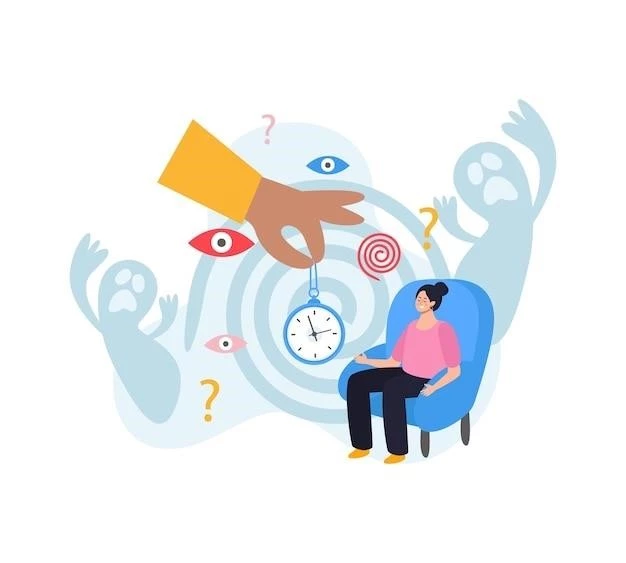Understanding Hallucinogen Persisting Perception Disorder (HPPD)
Welcome to our comprehensive guide on Hallucinogen Persisting Perception Disorder (HPPD). Understanding this neurological condition is crucial for anyone experiencing visual distortions, flashbacks, or distress. Stay informed on the causes, symptoms, diagnosis, and treatment options available for managing this syndrome.
Introduction
Welcome to the introductory section of our guide on Hallucinogen Persisting Perception Disorder (HPPD). This disorder, characterized by visual disturbances and persistent hallucinations, can be distressing and challenging to manage. Individuals with HPPD may experience recurrent visual disturbances that affect their daily lives and mental well-being.
Understanding the intricate nature of HPPD is essential for individuals who may be at risk or already experiencing symptoms. While not widely known, awareness of this disorder is crucial in recognizing the signs and seeking appropriate help. In this article, we aim to delve deeper into the symptoms, causes, diagnosis, and treatment options available for managing HPPD effectively.
By gaining insights into HPPD, individuals can better navigate the challenges it presents and access the necessary support and resources. Whether you are personally affected by this disorder or seeking information for a loved one, arming yourself with knowledge is the first step towards managing HPPD and improving quality of life. Let’s explore the complexities of HPPD and learn about the strategies for coping with its symptoms and seeking professional help.
Symptoms of HPPD
Recognizing the symptoms of Hallucinogen Persisting Perception Disorder (HPPD) is crucial for early detection and intervention. Individuals with HPPD may experience a range of distressing visual disturbances and perceptual changes that persist over time. Common symptoms include⁚
- Visual Snow⁚ Persistent visual static or snow-like patterns obscuring vision.
- Trailing or Afterimages⁚ Prolonged trailing of moving objects or lingering afterimages of stationary objects.
- Halos or Auras⁚ Perceiving halos or auras around people or objects.
- Enhanced Colors⁚ Intensified or distorted perception of colors.
- Geometric Patterns⁚ Seeing repetitive geometric shapes or patterns.
- Flashes of Light⁚ Sudden flashes or flickers of light in the visual field.
- Size Distortions⁚ Perceiving objects as larger or smaller than their actual size.
These symptoms can vary in intensity and frequency, causing significant distress and anxiety for individuals with HPPD. Understanding the unique visual disturbances associated with this disorder is essential for differentiating it from other conditions and seeking appropriate care.
If you or someone you know is experiencing persistent visual distortions or hallucinations, it is important to consult a healthcare professional for a comprehensive evaluation and personalized treatment plan. Early recognition and intervention can significantly impact the management and outcome of HPPD.
Causes of HPPD
Understanding the potential causes of Hallucinogen Persisting Perception Disorder (HPPD) can provide valuable insights into the factors contributing to this condition. HPPD is primarily associated with the use of hallucinogenic drugs, including LSD, psilocybin, and MDMA.
Individuals who have used these substances may be at risk of developing HPPD, especially if they have a history of frequent or high-dose hallucinogen use. The exact mechanisms underlying HPPD are complex and not fully understood, but it is believed to involve alterations in the brain’s visual processing pathways and neurotransmitter systems.
Factors that may increase the likelihood of developing HPPD include⁚
- Genetic predisposition to psychiatric conditions
- Underlying mental health disorders
- Exposure to trauma or high levels of stress
- Prolonged or intense use of hallucinogenic substances
While the precise cause of HPPD remains a topic of ongoing research, recognizing the potential risk factors associated with this disorder can help individuals make informed decisions about substance use and seek appropriate support when needed.
If you have a history of hallucinogen use and are experiencing persistent visual disturbances or perceptual changes, it is essential to consult with a healthcare provider for a comprehensive assessment and guidance on managing HPPD effectively.

Diagnosis and Distress
Diagnosing Hallucinogen Persisting Perception Disorder (HPPD) involves a comprehensive evaluation by a healthcare professional, typically a psychiatrist or neurologist. The diagnostic process often includes⁚
- Thorough medical history review
- Physical examination
- Psychological assessment
- Discussion of substance use history
- Assessment of symptoms and their impact on daily life
It is essential for individuals experiencing visual distortions or perceptual disturbances to communicate openly and honestly with their healthcare provider to facilitate an accurate diagnosis and appropriate treatment plan.
The distress experienced by individuals with HPPD can be significant, impacting their mental well-being and quality of life. It is common for those with HPPD to feel intense anxiety, confusion, and frustration due to the persistent nature of the visual disturbances.
Seeking professional help and support from mental health professionals can help individuals cope with the distress associated with HPPD. Psychotherapy, cognitive-behavioral therapy, and other psychological interventions can assist in managing anxiety, addressing negative thought patterns, and developing coping strategies for dealing with the symptoms of HPPD.
If you or someone you know is struggling with the distressing symptoms of HPPD, it is important to reach out to a qualified healthcare provider for guidance, support, and personalized care. You do not have to face this challenging condition alone, and help is available to assist you in managing HPPD and improving your overall well-being.
Treatment Options
When it comes to managing Hallucinogen Persisting Perception Disorder (HPPD), there are various treatment options available to help individuals cope with the symptoms and improve their quality of life. The following approaches may be considered⁚
- Psychotherapy⁚ Psychotherapy, such as cognitive-behavioral therapy (CBT), can be beneficial in helping individuals address the distress and anxiety associated with HPPD. Through therapy, individuals can learn coping mechanisms, manage intrusive thoughts, and develop strategies to navigate visual disturbances.
- Medication⁚ In some cases, healthcare providers may prescribe medications to alleviate symptoms of anxiety or depression that may accompany HPPD. It is essential to work closely with a healthcare provider to determine the most suitable medication and dosage for individual needs.
- Cognitive Therapy⁚ Cognitive therapy focuses on challenging and changing negative thought patterns that contribute to distress. By identifying and modifying maladaptive beliefs, individuals with HPPD can improve their emotional well-being and perception of their symptoms.
- Healthy Lifestyle Choices⁚ Engaging in regular exercise, maintaining a balanced diet, getting an adequate amount of sleep, and avoiding substances known to exacerbate HPPD symptoms can support overall well-being and symptom management.
It is crucial for individuals with HPPD to work collaboratively with healthcare providers to develop a personalized treatment plan that addresses their unique needs and goals. By exploring different treatment options and actively participating in therapy and medication management, individuals can enhance their ability to cope with HPPD and live a fulfilling life.
Remember that seeking help and being proactive in managing HPPD are essential steps towards improving symptoms and overall well-being. Do not hesitate to reach out to qualified professionals who can provide guidance, support, and effective treatments for HPPD.
Medication and Cognitive Therapy
Medication and cognitive therapy are essential components of the treatment plan for individuals with Hallucinogen Persisting Perception Disorder (HPPD). It is crucial to work closely with healthcare providers to determine the most effective approach to managing HPPD symptoms.
Medication⁚ In cases where individuals with HPPD experience significant anxiety or depressive symptoms, healthcare providers may prescribe medications such as selective serotonin reuptake inhibitors (SSRIs) or benzodiazepines to help alleviate distress. It is important to follow the prescribed dosage and attend regular follow-up appointments to monitor medication effectiveness and potential side effects.
Cognitive Therapy⁚ Cognitive therapy, including cognitive-behavioral therapy (CBT), can be highly beneficial for individuals with HPPD. Through cognitive therapy, individuals can explore thought patterns, beliefs, and behaviors that contribute to distress and learn coping strategies to manage symptoms effectively. Working with a trained therapist can provide valuable support in developing skills to navigate visual disturbances and enhance emotional well-being.
Combining medication with cognitive therapy can offer a comprehensive approach to managing HPPD symptoms and addressing the psychological impact of the disorder. It is essential to engage actively in therapy sessions, practice therapeutic techniques outside of sessions, and communicate openly with your healthcare team about any concerns or progress observed.
Remember that treatment for HPPD is individualized, and what works best for one person may not be the most suitable option for another. By collaborating with healthcare providers, exploring different therapeutic modalities, and remaining committed to the treatment plan, individuals can enhance their ability to cope with HPPD and work towards improved well-being.
Seeking professional help and actively participating in medication management and cognitive therapy are crucial steps in managing HPPD effectively. Do not hesitate to reach out to qualified professionals who can provide guidance, support, and evidence-based interventions tailored to your needs.
Flashbacks and Coping Strategies
Individuals with Hallucinogen Persisting Perception Disorder (HPPD) may experience distressing flashbacks, where they re-experience visual distortions or perceptual changes similar to those induced by hallucinogenic drugs. Coping with flashbacks and managing their impact on daily life is crucial for individuals with HPPD.
Identifying Triggers⁚ Recognizing specific triggers that may precipitate flashbacks is an essential first step in managing HPPD symptoms. Common triggers include stress, fatigue, substance use, and sensory overload. By understanding individual triggers, individuals can take proactive steps to minimize exposure and cope effectively.
Grounding Techniques⁚ Grounding techniques can help individuals regain a sense of control during flashbacks. Techniques such as deep breathing, mindfulness exercises, focusing on tactile sensations, and engaging in grounding activities can anchor individuals in the present moment and reduce the intensity of flashbacks.
Developing Coping Skills⁚ Building a toolbox of coping skills can empower individuals to navigate flashbacks and associated distress more effectively. Cognitive-behavioral techniques, relaxation exercises, positive self-talk, and maintaining a structured routine can be valuable strategies for managing flashbacks and maintaining emotional well-being.
Seeking Support⁚ It is important for individuals with HPPD to seek support from mental health professionals, support groups, or trusted individuals in their lives. Sharing experiences, seeking guidance on coping strategies, and receiving validation from others can provide comfort and reassurance during challenging times.
Remember that flashbacks are a common feature of HPPD, but with the right coping strategies and support in place, individuals can effectively manage these experiences and reduce their impact on daily life. By practicing self-care, engaging in grounding techniques, and seeking professional help when needed, individuals can navigate flashbacks with resilience and strength.
If you or someone you know is struggling with flashbacks or finding it challenging to cope with the symptoms of HPPD, do not hesitate to reach out for help. With the right support and coping strategies, it is possible to effectively manage flashbacks and improve overall well-being while living with HPPD.
